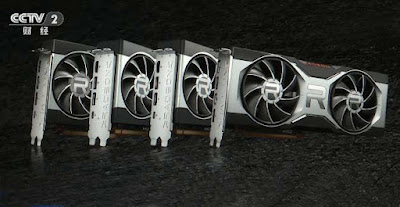After China's regulatory ban on cryptocurrency mining business, mining companies are accelerating the transfer of domestic mining machine business overseas.
On July 27, Bitmain announced the divestment of its mining pool brand Antmining Pool and will carry out this part of the business overseas.
Prior to this, Huobi Mall and Lebit Mining Pool have suspended domestic mining operations, and Canaan Technology and Bit Mining have all transferred these businesses overseas.
Stripping off the "Antpool"
On July 27, Bitmain announced that it was divesting its mining pool brand "Antpool". The relevant person in charge of Bitmain told the Cailian Community Blockchain reporter that the divestiture of Ant Mine Pool began in the first quarter of this year, and completed communication with shareholders in March, and then began the divestiture. All laws were completed on May 1st. Layer peeling.
Bitmain said that it is still doing some business sorting and will complete related actions as soon as possible. After receiving the support of new shareholders, Ant Pool will independently carry out mining pools and other businesses overseas.
Ant Mining Pool is a cryptocurrency mining platform launched by Bitmain in November 2014. It provides mining services for multiple cryptocurrencies including Bitcoin, Bitcoin Cash, Litecoin, Ethereum, Ethereum Classic, etc. The hash rate of this mining pool has always been at the forefront.
According to third-party computing power statistics, in the Bitcoin mining pool computing power rankings, as of 12:00 on July 29, the ant mining pool ranked first in the world with a real-time computing power of 16,968.48PH/s. However, the computing power has fallen by nearly half from the May high.
Domestic mining companies all go abroad
Since the beginning of this year, the regulatory crackdown on cryptocurrency-related businesses has been escalating.
In mid-May, the China Payment and Clearing Association and other three associations jointly issued a notice to prevent virtual currency speculation, requiring financial institutions not to conduct related businesses. On May 21, the meeting of the Financial Committee of the State Council also made it clear that it would crack down on Bitcoin mining and trading.
Since then, Inner Mongolia, Xinjiang, Yunnan, Sichuan and other places have successively introduced policies to clean up and rectify virtual currency mining-related industries and strictly prohibit mining operations.
In addition to severely cracking down on mining, the central bank also interviewed a number of banks and payment institutions, requiring a comprehensive investigation and identification of virtual currency exchanges and over-the-counter dealers' capital accounts, and timely cutting off the transaction funds payment link.
After that, for the mining business, many domestic mines and mining machine manufacturers began to "shut down" and "go overseas" strategically.
On the evening of July 28th, Bitcoin Mining announced that it had purchased 2500 brand new Bitcoin mining machines to be shipped to Kazakhstan by means of payment. The company has deployed 3,819 Bitcoin mining machines locally.
Earlier in June, Canaan Technology announced that it had officially opened its self-operated mining business in Kazakhstan. Mining machine operators, including Huobi Mall and Lebit Mining Pool, decided to suspend mining business in China.
A Sichuan mine owner told the Cailian Community Blockchain reporter that all his mines have been shut down and he is looking for opportunities to go to sea. In order to avoid gathering together in Iran, Kazakhstan and other mines, he said that he might Move the mine to Southeast Asia.
Can the AI chip business rise?
In addition to shutting down mining farms and relocating to the sea, supervision of the pursuit and interception of cryptocurrency-related businesses has also forced blockchain-related companies to focus more on technological breakthroughs.
Bitmain said that in the future, the company will continue to focus on the R&D and sales of computing power chips and servers based on its technological advantages in the field of chip design, hardware R&D and manufacturing.
In the cryptocurrency computing power arms race, as the world's largest mining machine manufacturer, Bitmain has witnessed the historical progress of Bitcoin mining machine chips from CPU to GPU to ASIC dedicated chips, and its mining machine chip technology route has also gone through The evolution from 55nm to 28nm to 16nm and then to 7nm and 5nm.
In an interview with Cailian Community Blockchain reporters, Lu Xiaobao, head of the Chuangxing Semiconductor Investment Group of China Science and Technology, analyzed that AI chips cover a wide range of information processing, such as voice, image, video, and automatic driving. Different information processing is suitable. With different algorithms, chips with different architectures are needed to obtain higher computing efficiency. The core is the ratio of computing power to power consumption. From a technical point of view, the underlying technology between the Bitcoin mining machine chip and the AI chip is the same, but the scene is more fixed, that is, the mining algorithm, and the competition is also the power-to-power ratio.
"From the perspective of underlying technical capabilities, it is feasible for mining machine manufacturers to transform into AI chips. However, the core of the difficulty of transformation depends on the understanding of AI chip application scenarios. Different scenarios need to adapt to different chip architectures and algorithms. Technology itself is only a means of realization." Lu Xiaobao said.




